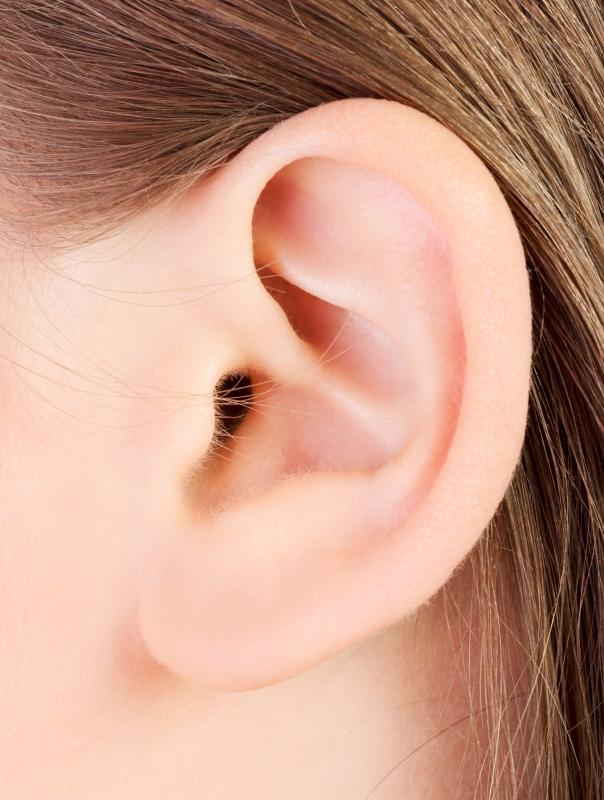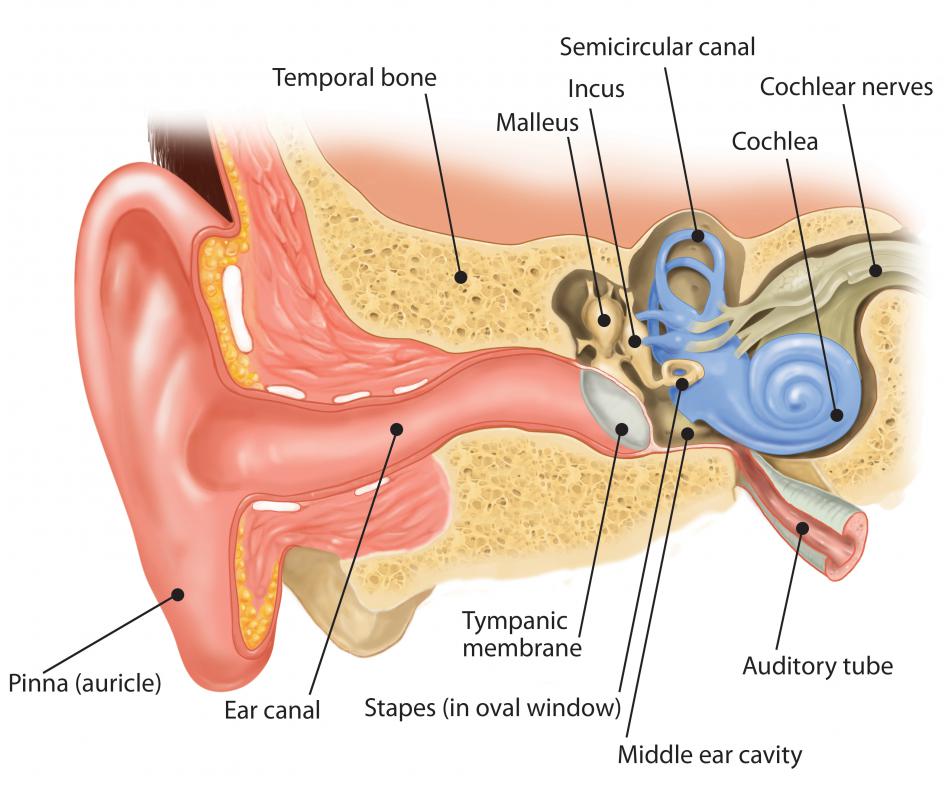At WiseGEEK, we're committed to delivering accurate, trustworthy information. Our expert-authored content is rigorously fact-checked and sourced from credible authorities. Discover how we uphold the highest standards in providing you with reliable knowledge.
What Causes a Burst Eardrum?
A burst eardrum, also called a ruptured or perforated eardrum, can have either external causes or internal causes. External causes of a burst eardrum can include any type of trauma to the head. This could be a blow to the head, a slap to the ear, or an object penetrating the eardrum. An explosion can also be an external cause of a burst eardrum. The most common internal cause of a burst eardrum is an infection of the middle ear. A virus, bacteria, or fungus can cause a middle ear infection. This is the most common cause of a ruptured eardrum in children.
The eardrum, also called the tympanic membrane, is a thin tissue that protects the middle ear and is part of the hearing process. When a hole or tear develops in the eardrum, it is considered to have ruptured. The rupture can cause hearing loss and lead to an increase in middle ear infections. The likelihood of and the amount of hearing loss are dependent on the size of the tear and the location of the tear.
An ear infection creates a pressure that builds until the eardrum ruptures. Symptoms may include a sharp pain, bleeding from the ear, and vertigo. There may also be drainage from the ear and buzzing in the ear.

Barotrauma can be a another cause of a burst eardrum. This is stress on the eardrum caused by sudden changes in air pressure that causes the eardrum to tear. This sometimes occurs on airplanes or when scuba diving. Other possible causes of a burst eardrum can include lightning blasts, falls, and some sports injuries.
In most instances, a burst eardrum will heal without treatment. Occasionally, the eardrum doesn’t heal within a few weeks, and medical intervention is necessary. This may include an eardrum patch or surgery to repair the damage.

While the eardrum is healing, care should be taken not to allow water into the ear. Over-the-counter pain medication may be helpful, and sometimes a heating pad will help to relieve pain. In some instances, doctors will prescribe an antibiotic to prevent infection while the ruptured eardrum heals.
There are precautions that may prevent a burst eardrum. If an ear infection is suspected, it should be treated early. Objects, including cotton swabs, should not be put into the ears. Activities such as flying and scuba diving should be avoided if symptoms of illness are present. Protection against loud noises should also be used.
AS FEATURED ON:
AS FEATURED ON:















Discuss this Article
Post your comments